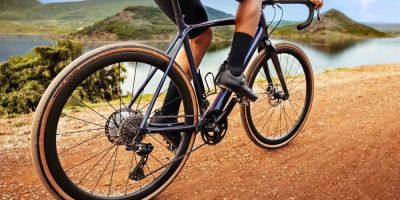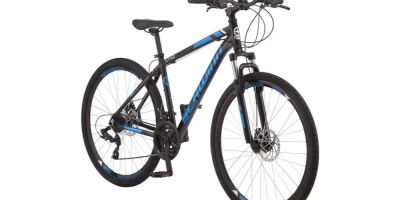How to Bike Through Winter Weather Safely
Biking in winter can feel like an entirely different world. As the temperature drops and snowflakes start to fall, the idea of cycling through these challenging conditions may seem intimidating. However, with the right preparation and mindset, winter cycling can be both enjoyable and safe. In this guide, I’ll share everything I’ve learned about biking in cold weather, from proper gear to bike maintenance, so you can stay safe and have fun on your winter rides.

Conte's Bike Shop
3449 Wilson Blvd, Arlington, VA 22201, USA
1. Preparing Yourself for Cold Weather Rides
The first thing I learned about winter biking is that preparation is key. The cold weather requires a different approach to cycling, one that prioritizes staying warm and dry. Here’s what you need to do:

Bicycle Barn LLC
839 Reading Rd, East Earl, PA 17519, USA
Dress in Layers
Wearing layers is essential for winter cycling. Start with a moisture-wicking base layer to keep sweat off your skin. A breathable mid-layer will help retain warmth without causing overheating, and a windproof outer layer is necessary to block the cold wind. Don’t forget thermal gloves and a balaclava or neck warmer to protect your face and extremities. I've found that layering properly can make a huge difference, allowing me to adjust if I get too warm or cold.
Invest in Thermal Cycling Gear
Winter-specific cycling gear is an investment that pays off. Winter cycling gloves, thermal socks, and shoe covers are must-haves. My hands and feet tend to get cold quickly, so I always make sure to wear insulated gloves and boots. A quality cycling jacket that’s both windproof and waterproof can make even the most frigid temperatures bearable.
2. Bike Maintenance for Winter Conditions
Winter weather is tough on bikes. The snow, ice, and salt on the roads can cause serious wear and tear if your bike isn’t properly maintained. Here’s how I ensure my bike stays in top condition:
Clean Your Bike Regularly
Salt and grime from the roads can quickly accumulate on your bike, leading to rust and corrosion. I make it a habit to clean my bike after every winter ride. I use a mild soap solution to wash off the salt and grime, followed by a thorough drying to prevent moisture buildup.
Use the Right Tires
One of the best investments I made for winter biking was switching to winter-specific tires. These tires are designed with a tread pattern that provides extra traction on snow and ice. They also tend to be wider, which gives more stability in slippery conditions. In really snowy areas, I recommend getting studded tires for additional grip.
Lubricate Your Chain and Gears
In cold weather, your bike’s chain and gears can seize up quickly. After cleaning, I always apply a lubricant to the chain to ensure smooth shifting and prevent rust. A wet lube works better in winter conditions because it’s designed to withstand the elements better than dry lube.
3. Riding Safely in Winter Conditions
Once you’ve got the right gear and your bike is in good condition, it’s time to think about how to ride safely in winter conditions. Here are the key tips I’ve learned from years of winter cycling:
Stay Visible
Shorter days and low visibility conditions make it important to be seen by others on the road. I always make sure to wear bright clothing, even if the weather is overcast. Reflective gear and bike lights are also essential. I use front and rear lights on my bike, even during the day, as snow and fog can reduce visibility significantly.
Ride Smoothly
In snowy or icy conditions, riding smoothly is crucial. Avoid sudden movements, quick turns, or hard braking. I’ve found that keeping a steady pace and anticipating obstacles is the best way to avoid accidents. If you're not sure how icy the road is, it’s always better to err on the side of caution and ride slower than usual.
Plan Your Route Wisely
Not all roads are equal in winter. I try to avoid heavily trafficked roads that might not be cleared of snow or ice. Instead, I stick to quieter streets or bike paths that are better maintained. It's also smart to check the weather forecast before heading out and avoid biking during heavy snowstorms or freezing rain.
4. Dealing with Ice and Snow
Riding on ice and snow is one of the biggest challenges winter cyclists face. Here’s how I tackle these tricky conditions:
Practice Ice Handling Skills
Riding on ice can be scary at first, but with practice, I’ve learned to handle it. I always look ahead and avoid sharp turns. If I’m approaching a patch of ice, I try to ride straight over it without making any sudden movements. Low tire pressure can also help improve traction on icy surfaces.
Know When to Walk
Sometimes, the conditions are too dangerous to bike. I’ve had to dismount and walk my bike through certain areas, especially during blizzards or when the ice is too thick. It’s important to recognize when biking becomes too risky. Walking in these situations is safer and ensures you won’t end up injured.
5. Building Confidence and Staying Positive
Winter cycling is not only about surviving the season; it’s about embracing the challenge. I’ve found that building confidence comes with experience, and the more I ride, the more I look forward to those crisp winter mornings on my bike. It’s all about having the right attitude and being prepared. You’ll quickly learn that cycling through winter has its rewards—like fewer crowds on the road and a peaceful, scenic ride through the snow.










